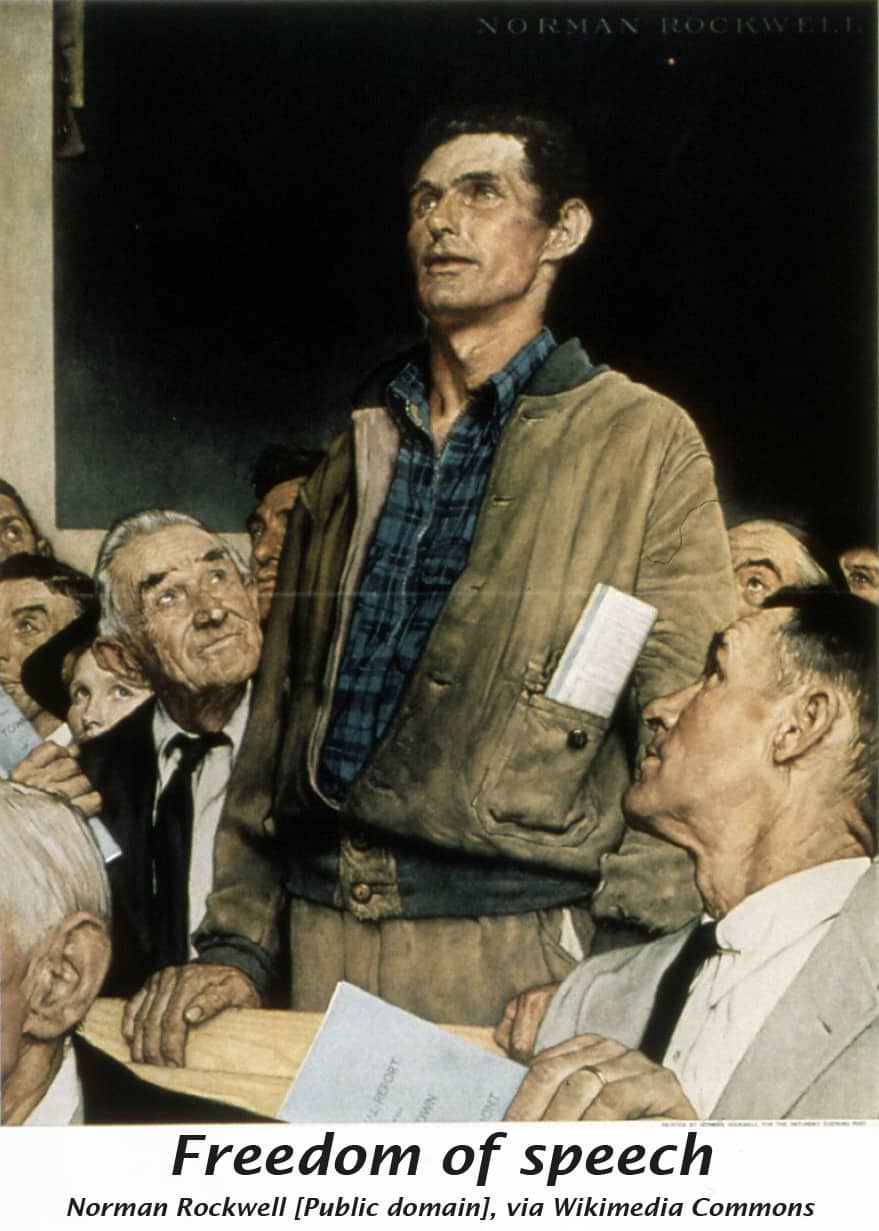No-one likes being accused of intolerance. It is the ultimate put-down. To be branded ‘intolerant’ puts you in the same category as a fascist or a bigot. For many people, tolerance is the ultimate virtue. But this creates a paradox – as a society we can tolerate anything but intolerance!
Instinctively we want to agree with this. Intolerance threatens social harmony. It is often associated with unthinking prejudice – a desire to impose minority views on the majority. Or it threatens to make majority views theonlyviews allowed, sweeping aside all opposition.
Intolerant societies become totalitarian – think of Hitler’s Germany, Stalin’s Russia or Saddam Hussein’s Iraq. Surely, tolerance is vital to a free and democratic society?
Well, yes and no – because it all depends on what you mean by ‘tolerance’.
Sincerity or truth?
Until quite recently, ‘tolerance’ meant that a society allowed people to practise and promote their own beliefs without fear or favour. It meant that while I might hold views entirely opposed to your own, I would fight for your right to hold the views you do.
This presupposed, of course, that there is something called ‘truth’ to disagree about – but that, by and large, is no longer the case. The very idea of ‘tolerance’ has been drastically altered and the emphasis is now on ‘pluralism’. This is the idea that all views are equally valid.
To claim that your belief is right and -others are wrong smacks of arrogance – and we can’t have arrogant people wandering the streets or waffling on the airwaves. What matters (they say) is sincerity not truth. As long as people are sincere in their beliefs we should live and let live.
We are not dealing with facts (they continue) but beliefs. Now, since beliefs are private they should not be allowed out into the public domain, because that is when they become socially disruptive.
Convincing? Let’s look a bit more closely.
Political correctness
First, it has to be said that pluralism of beliefs is nothing new – a variety of beliefs have usually existed side by side.
Most of the first Christians were Jews but parted company with their Jewish neighbours by claiming that the God of the Old Testament had entered human history in the form of a carpenter from Nazareth.
To them this was a matter of historical fact – just as real as Julius Caesar crossing the Rubicon. They had met him, heard him and touched him.
In a letter (now in the Bible) one of them wrote, ‘That which was from the beginning, which we have heard, which we have seen with our eyes, which we have looked at and our hands have touched – this we proclaim concerning the Word of life’ (1 John 1:1).
They were compelled not by fanaticism but by facts. They could no more deny that Jesus is God than Galileo could deny that the earth revolves around the sun. In this the Christians went against the political correctness of their age.

Thrown to the lions
Here’s how historian Edward Gibbon described the religious scene in his Decline and fall of the Roman Empire: ‘The various modes of worship which prevailed in the Roman world were all considered by the people as equally true, by the philosophers as equally false, and by the magistrates as equally useful’.
Clearly, the Romans had no problem adding a new god to their list! But the Christians had the temerity to claim that there is only one God and he can only be known through Jesus. The result? They were not tolerated – they were thrown to the lions.
This leads to the main reason why the pluralistic view of tolerance is really quite intolerable – because it undermines the whole idea of truth. If everything is true (even when beliefs are contradictory) then nothing is true. There is no such thing as truth.
To put this into some sort of perspective, let me describe the experience of a friend of mine who attended a meeting of the Flat Earth Society (yes, it really exists; visit their website!). There was a single speaker.
He seemed sincere. He looked sincere. He acted sincere. But my friend, who is a Christian, thought the speaker had his facts plain wrong.

Flat earth?
He admitted this was intolerant of him. Maybe the speaker wasn’t wrong. Maybe, if he was as sincere as he looked, he was right. Perhaps those in the audience who heckled him were wrong, although they looked sincere too.
But perhaps everyone was right. Maybe the earth was flat for him and round for them – and just confusing for my friend. But, of course, if that were the case things would keep changing, wouldn’t they? The world would be flat one moment and round the next – depending on what was sincerely believed at the time.
But the odd thing was, the crowd was not very tolerant of the little man from the Flat Earth Society. They were intolerant of him because he was being intolerant of them – for he was claiming to be right!
He might have done better to claim that people can believe nothing or everything about the world. But I am not sure that would have been acceptable either. For the world is either flat or round; it cannot be both.

Fake tolerance
Here lies the tyranny of relativism which masquerades as tolerance – it quickly becomes intolerant. Everybody is right, and nobody is wrong – except the man who wants to say that somebody else is wrong. That man, they maintain, is always wrong and must be silenced.
But of course such ‘tolerance’ is fake. It is saying that when it comes to certain things, truth does not matter. And the step from saying that truth does not matter to forcing people to agree that truth does not matter is a short one.
As a matter of fact, Jesus either is or is not God. He did or did not rise from the dead. He could not have remained dead and risen from the dead at the same time – that is nonsense. You simply cannot have it both ways.
Either our eternal well-being depends on our being rightly related to Jesus – or it doesn’t.
We can disagree about the facts and still live amicably in the same society. That is true tolerance. But the ‘tolerance’ that insists that contradictory claims are equally valid is intolerable. It comes at far too high a price – the price of truth.




